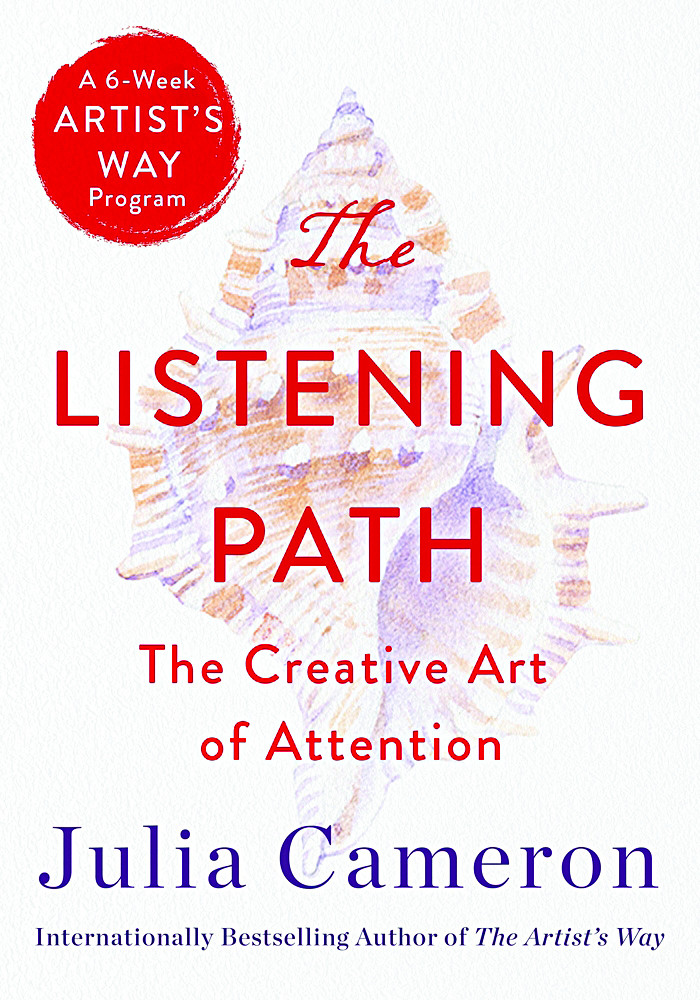People Like Her by Ellery Lloyd (Harper, 275 pages)
I don’t resent Mark Twain for using a pen name, so I’m not sure why I’m so bothered by Ellery Lloyd.
Lloyd is the pseudonym for the two authors of People Like Her, Collette Lyons and Paul Vlitos, who are married to each other. Can they not just say the novel is written by Vlitos and Lyons, as they do on the jacket and publicity materials? What is the point of the Ellery nonsense?
These are the first of the many questions posed by this novel, which I grudgingly grew to like despite the authorship charade and a disturbingly frothy premise.
It’s about an Instagram mom, Emmy Jackson, who has deliberately built a career as a social-media influencer. Emmy has two young children and a husband, Dan, a novelist whose fame and promise have diminished in the shadow of his wife. The two take turns narrating the story along with a third anonymous and sinister voice.
The story takes place over the course of six weeks, beginning with banal Twilight-like foreshadowing in a prologue. (Ellery Lloyd: “I think it is possible that I am dying.” Stephenie Myer: “I’d never given much thought to how I would die.”)
Then present-day Emmy jumps in, explaining how she transformed from a fashion editor at a magazine to an Instagram mom who goes by “Mamabare” — “because I’m a mama who is willing to bare it all, warts and all.”
Problem is, this cloying sentiment isn’t even true. With the help of an agent who specializes in building influencers into brands, Emmy has constructed a life that doesn’t resemble her own, but not how you’d think. Most people use social media to make their lives look better than they are. Emmy built a brand by making hers look worse. She figured out that no one wanted to hear how her baby slept through the night, about her perfectly neat and organized house (that gets a professional cleaning twice a week), about her normal, happy childhood. So she stretches the truth just a little, as if it were pizza dough.
“Which,” Emmy says, “means the hours before a camera crew arrives for a shoot are always spent untidying. … It takes effort to calibrate just the right level of chaos, but dirty isn’t aspirational and perfect isn’t relatable. And Mamabare is nothing if not relatable.” Followers relate to her so much, and her confessions of #graydays, that she now requires an assistant to keep up with the curation of Instagram posts, with responding to comments, with opening the boxes of free products that arrive daily from companies hoping to get Emmy’s endorsement.
Dan is deeply conflicted over his wife’s duplicity. On one hand, he is uncomfortable with the deceit and the artificial environment in which his children are growing up. On the other, “if we pull the plug now there’s no way we can pay the bills.”
Enter the villain.
Busy with their lives and the ever-tightening tension in their marriage, Emmy and Dan are oblivious to a threat growing close to their family. One of Emmy’s followers has a grudge, a grudge born of tragedy that is revealed over the course of the book. She is out for revenge.
She shows up at Emmy’s events and watches all her video appearances, looking for clues to where the family lives. She becomes something like Glenn Close’s character in Fatal Attraction, but instead of a bunny there is a soiled teddy bear that provides a memorable and chilling visual.
The authors (or author, if I must play along) are both professional writers; he has written two other novels, she is a journalist and editor. They bring polish to a simple story that is slickly plotted, giving it a feel of complexity that, like Emmy’s InstaLife, isn’t entirely authentic. That said, only a few times does the novel try to be more than it is (as when Dan goes off into soliloquies about philosophy and Russian history); most of the time it is comfortable in its own skin, which is that of a Hollywood-bound thriller. It has the feel of an idea born of a couple of beers that ends with the breathless conclusion, “That would be a great movie.” But first, of course, it must be a book.
People Like Her is a double entendre; people do like Emmy. And people also have deep and complicated feelings about people like her. As Emmy’s agent, Irene, describes Emmy’s field: “I’ve seen the future, and it’s social media. … Influencers are where the money’s at. And they’re so malleable. They’re like people, only in two dimensions.”
It’s worth mentioning that the authors are British and there is a distinct British flavor to the novel with its “InstaMums” and other peculiarities of cross-Atlantic speech. It still has a Hollywood feel and could be said to be an InstaBook — a glossy presentation designed to evoke certain thoughts and emotions (social media, bad; real, messy family life, good) while making multiple people a boatload of money.
That said, it’s escapist fiction, done well, and an enjoyable, if occasionally disturbing, weekend read. B
BOOK NOTES
You may not have heard of John Kilcullen, but chances are you’ve heard of his most memorable series of books.
The Hartford Courant told the story in 1997, how Kilcullen was in a computer store when he overheard another customer saying that he needed a book to teach him computer basics. “Something like DOS for Dummies,” he quipped, not knowing that someone who worked in publishing was listening.
When Kilcullen later helped to found IDG Books Worldwide, he hired Dan Gookin to write exactly that book, and a brand was born in 1991. The “For Dummies” line was an improbable success (let’s insult the reader and then have them buy our book!) but now you can get basic training for “dummies” or “idiots” on almost any subject.
Even more improbably, Bill Gates is now recommending one. Promoting his own book, How to Avoid a Climate Disaster (Knopf, 272 pages), in The New York Times this month, the Microsoft founder recommends Weather for Dummies, which he called “probably the best book written for a general audience about the subject.”
Someone wasted no time putting that line on the top of the Amazon listing.
Written by John Cox, it’s 384 paperback pages and came out in December. The publisher is John Wiley & Sons, which now shepherds the Dummies brand at dummies.com.
DOS for Dummies is still in print, by the way, and now has a companion, More DOS for Dummies, for those who can’t get enough. As for the rest of the titles, there are too many to list here, but they include auto repair, astronomy, sports betting, running a bar, song writing, co-dependency and air frying. Can’t help but wonder what Gates thinks about Microsoft Office 365 for Dummies
Books
Author events
• DR. DANIEL O’NEILL Author presents Survival of the Fit. Hosted by The Toadstool Bookshops of Nashua, Peterborough and Keene. Virtual, via Zoom. Thurs., March 4, 7 p.m. Visit toadbooks.com or call 352-8815.
• NORMAN VANCOR Author presents Swift Silent Deadly. Hosted by The Toadstool Bookshops of Nashua, Peterborough and Keene. Virtual, via Zoom. Sat., March 6, 11 a.m. Visit toadbooks.com or call 352-8815.
• C. J. BOX Author presents Dark Sky. Virtual livestream hosted by The Music Hall in Portsmouth. Tues., March 9, 7 p.m. Tickets cost $5. Call 436-2400 or visit themusichall.org.
• MARK EDWARD Author of Psychic Blues presents. Virtual, via Zoom. Part of Concord’s Walker Lecture Series. Wed., March 10, 7:30 p.m. Free. Call 333-0035 or visit walkerlecture.org.
• ELLIOT ACKERMAN & ADMIRAL JAMES STAVRIDIS Authors present 2034. Virtual livestream hosted by The Music Hall in Portsmouth. Tues., March 16, 7 p.m. Tickets cost $5. Call 436-2400 or visit themusichall.org.
• THERESA CAPUTO the star of TLC’s Long Island Medium will present “Theresa Caputo: The Experience Live” at the Capitol Center for the Arts (44 S. Main St. Concord, ccanh.com) on Wed., April 7, 7:30 p.m. Tickets start at $39.75 (with option for a VIP Photo Op for an additional $49.95).
Book Clubs
• BOOKERY Online. Monthly. Third Thursday, 6 p.m. Bookstore based in Manchester. Visit bookerymht.com/online-book-club or call 836-6600.
• GIBSON’S BOOKSTORE Online, via Zoom. Monthly. First Monday, 5:30 p.m. Bookstore based in Concord. Visit gibsonsbookstore.com/gibsons-book-club-2020-2021 or call 224-0562.
• TO SHARE BREWING CO. 720 Union St., Manchester. Monthly. Second Thursday, 6 p.m. RSVP required. Visit tosharebrewing.com or call 836-6947.
• GOFFSTOWN PUBLIC LIBRARY 2 High St., Goffstown. Monthly. Third Wednesday, 1:30 p.m. Call 497-2102, email [email protected] or visit goffstownlibrary.com
• BELKNAP MILL Online. Monthly. Last Wednesday, 6 p.m. Based in Laconia. Email [email protected].
• NASHUA PUBLIC LIBRARY Online. Monthly. Second Friday, 3 p.m. Call 589-4611, email [email protected] or visit nashualibrary.org.
Language
• FRENCH LANGUAGE AND LITERATURE CLASSES
Offered remotely by the Franco-American Centre. Six-week session with classes held Thursdays from 6:30 to 8:30 p.m. $225. Visit facnh.com/education or call 623-1093.
Special events
• EXETER LITFEST Literary festival will feature local authors, keynote speaker Victoria Arlen, book launches, a Saturday morning story hour for kids, and programs on various topics including publishing tips, mystery writing and homeschooling. Hosted virtually via Zoom by Exeter TV. Thurs., April 1, through Sat., April 3. Free and open to the public. Visit exeterlitfest.com.
Featured photo: People Like Her






